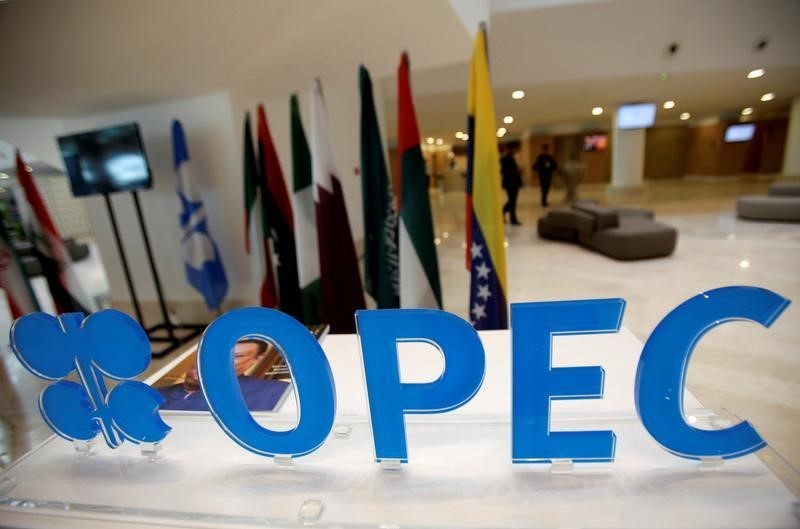Investing.com - The Organization of the Petroleum Exporting Countries (OPEC) will kick off a two-day meeting of experts on Friday designed to hammer out the details of an eventual agreement on oil production freezes and/or cuts by member countries.
OPEC members were scheduled to meet on Friday with invited non-OPEC producers expected to join the group on Saturday to continue discussion.
OPEC sent an invitation to 12 non-cartel states including Russia, Azerbaijan, Kazakhstan, Oman, Egypt, Bahrain, Colombia, Mexico, Trinidad and Tobago, Bolivia, Norway and Canada.
Russia, Kazakhstan and Mexico were reported to have confirmed attendance while Norway decided not to participate.
The two-day gathering was the result of a decision made by OPEC on the sidelines of the International Energy Forum held on September 28 in Algeria to set a production ceiling of 32.5-33 million barrels per day.
The September agreement was reached against the backdrop of decline in oil prices, which had fallen from around $110 a barrel to values below $50 since mid-2014.
The technical committee meeting in Vienna on Friday was expected to identify the production volume of individual OPEC member countries, while discussing participation with non-cartel states on Saturday.
Analysts have been skeptical not only about the possibility of an agreement being hammered out, but that individual countries would adhere to any imposed quotas.
One third of OPEC members will not participate
Iraq, the second biggest producer in OPEC after Saudi Arabia, insisted last weekend that it should be exempt from any deal to scale back production as it needs the oil revenue to fund its continuing war against Islamic State militants.
Iraq argued that its case was similar to Nigeria and Libya, two more countries that were exempted from the Algiers deal because violence has wrought havoc in their oil industries.
Some news reports said Iraq is only willing to freeze output at its September level. However, the country reports that it produced 4.78 million barrels a day last month, while OPEC estimates from secondary sources put the total at 4.46 million. It is assumed that production caps would be based on the OPEC forecasts.
Falah Al-Amri, the head of the state-backed Iraqi company State Oil Marketing Organization (SOMO), was quoted as saying that his country had topped 4.7 million barrels per day and would not backtrack.
Adding to the fact that Iran also stated that it would not reduce production until it reached pre-sanction output of 4 million barrels per day, the implication is that no less than one third of total OPEC production will not be participating in any plan.
OPEC optimistic over hammering out agreement
Still, there were hopes that oil producers would be able to sign off on a deal as Saudi Arabia and its Gulf OPEC allies said they were already willing to cut 4% from their peak oil output, energy ministers from the Gulf countries told their Russian counterpart this week, sources familiar with the matter told Reuters on Thursday.
The report suggested that given the unwillingness of the aforementioned countries to make reductions to their output Saudi Arabia would have to decide if it was willing to make a further concession in order to close the deal.
Additionally, after Venezuelan oil minister Eulogio del Pino and his Russian counterpart Alexander Novak met last Tuesday to discuss OPEC’s progress on a freeze, the Russian Energy Ministry issued a statement:
"The sides discussed the issue of participation of the OPEC states and independent oil-producing countries in the agreement on oil output freeze, various versions of which are being elaborated at the moment."
The statement came after RIA Novosti Monday cited a “cartel source” as saying that "the agreement is about 90% ready."
The source also indicated that there are no "principal disagreements" among the members of the cartel on the issue.
In any case, OPEC secretary general Mohammed Barkindo also showed himself to be optimistic over an eventual deal.
On October 18, Barkindo stated that he expected "all building blocks of agreement to be in place" by the official OPEC meeting set for November 30 at which details on individual output quotas are expected to be finalized.
As market participants awaited developments in Vienna on Friday, oil traded lower. U.S. crude futures lost 0.32% to $49.56 by 3:08AM ET (7:08GMT), while Brent oil traded down 0.28% to $50.33.
